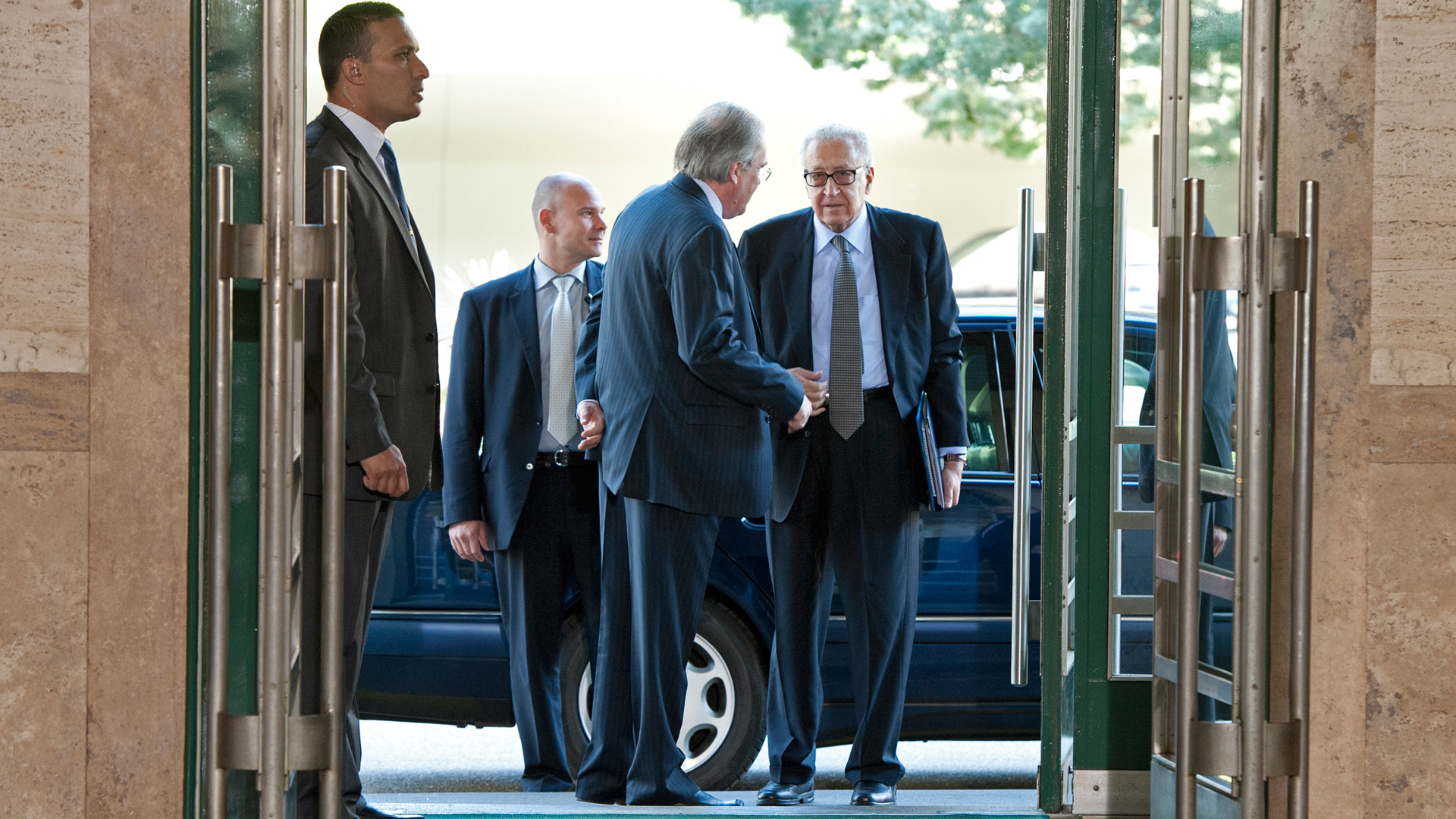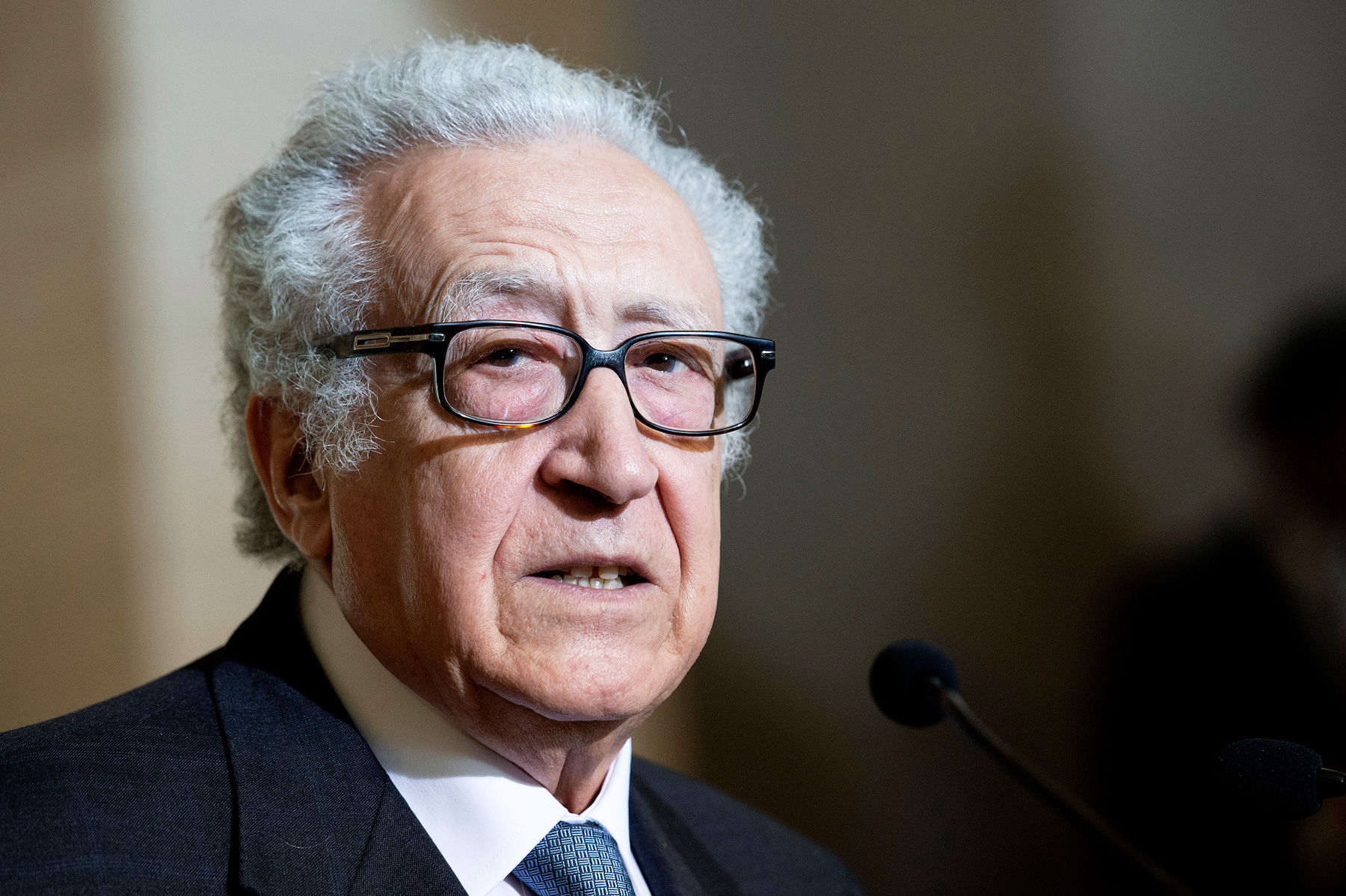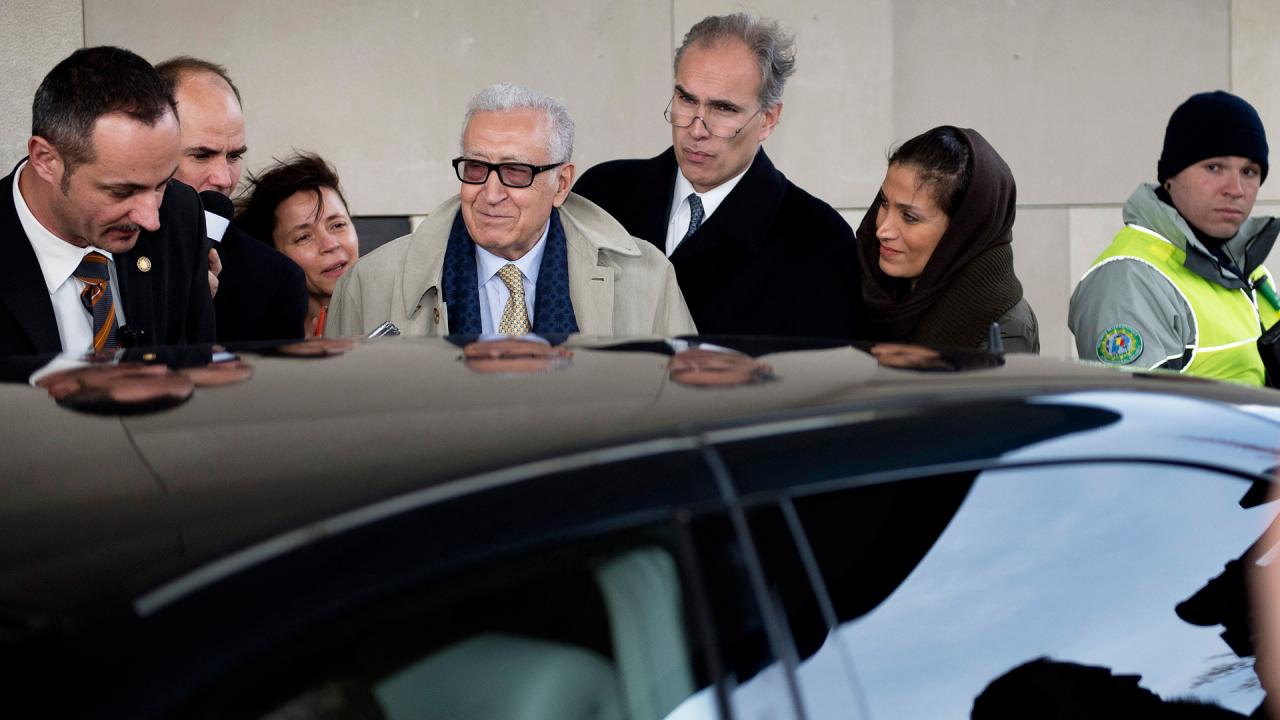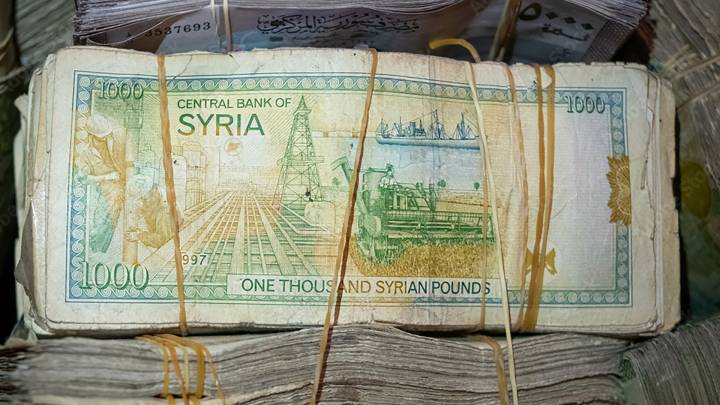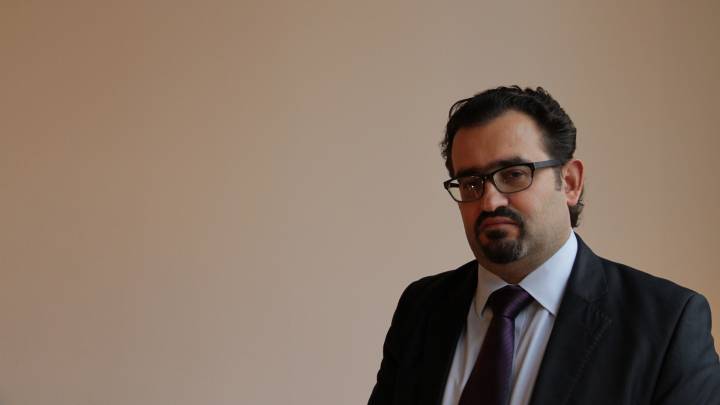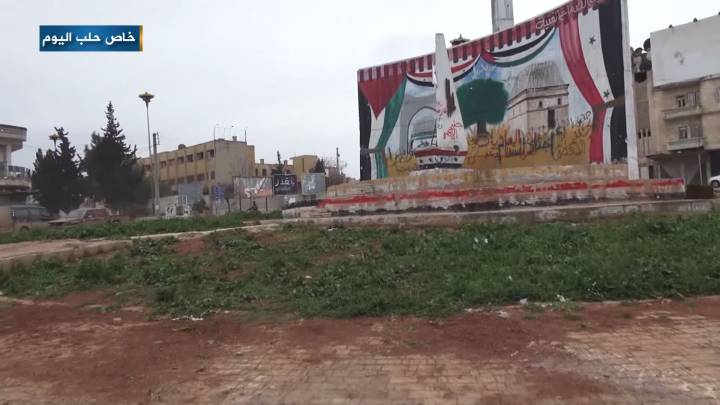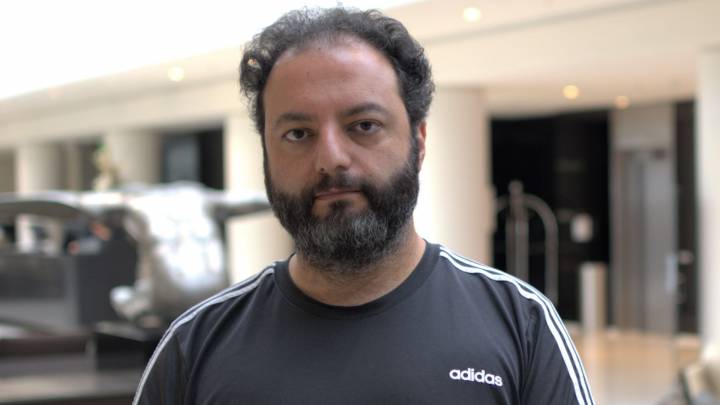Lakhdar Brahimi, former UN special envoy to Syria, explains why he thinks there is still hope of ending the civil war there.
zenith: Have you witnessed other conflicts during your diplomatic career that compare with the war in Syria?
Lakhdar Brahimi: There are always a few similar elements in conflicts like these. Of course Syria is extremely complicated, but it has been mismanaged and made worse by practically everybody. The Syria conflict is solvable, though, if everybody would do what needs to be done.
What would that be?
For a long time, the parties involved were convinced that a military solution could quickly be achieved. The people opposed to the government both inside and outside Syria were certain that it would fall in a matter of weeks, if not days. So it was difficult for us to find partners for a political settlement. Now, a few years into the conflict, it’s obvious that a military victory for one side or another is not in sight. Still, nobody is working for a political solution! The Russians are bombing, the Americans are giving bombs to others and are also bombing. No real work is being done, except perhaps at the United Nations.
Prussian military theorist Carl von Clausewitz defined warfare as an extension of policy. Is Syrian President Bashar al-Assad pursuing the reverse strategy, using political negotiations as an instrument for military warfare, because it serves to win time and gain legitimacy?
Von Clausewitz is absolutely right. Every side has been trying to use military force to reach political objectives – but it hasn’t worked for any of them. They are still hoping that it will somehow work, while paying lip service to the idea of a political solution. The Syrian government went to the Geneva talks – which I organised – without the slightest intention of negotiating a political solution. They were there because the Russians told them that they absolutely had to come. And the opposition only decided hours before the opening to attend the conference, and they were not prepared at all. They were divided and I think most of their supporters told them not to go, or at least not to make any concessions because they thought they were on the winning side militarily.
It’s obvious that a military victory for one side or another is not in sight.
Were these negotiations just handled badly or have your efforts been systematically undermined?
The result is the same: The stakeholders inside and outside Syria were not cooperating. And I am not sure they are now. I said very early on that the closer you get to those who are fighting on the ground, the less interest in a political solution you find. A real interest in a political solution lies with the international community, in particular Russia and the United States. That is why I insisted on bringing them together and we managed to work together for a few months. But they were both pulled away by their respective alliances, with the Syrian government – and to a certain extent the Iranians – on the one side, and the other regional powers and the Syrian opposition on the other. But the important signals still mostly come from Russia and the United States. I hope that one of these bilateral meetings will produce something more concrete than what we have now.
Does the UN still offer the appropriate framework to resolve conflicts or does that have to happen on an inter-superpower level?
What Winston Churchill said about democracy also applies to the UN - it’s the best system we have right now. It needs to keep improving, but the world cannot do without it.
In an interview with Al Jazeera, you said that the Russian assessment of the conflict in Syria was by far the most realistic.
From the beginning, the Russians said that the regime in Syria could not be compared to those in Egypt or Tunisia, meaning it would not collapse in a matter of weeks – and they were right. The Russian analysis was more realistic than practically anyone else’s. Yes, they were openly supporting the Syrian government. But the Russians knew Syria better than any outside power because they have never left the country, and have maintained extensive relations with the army and the intelligence agencies. Some 20,000 Russian women are married to Syrians, many of them engineers who studied in Russia. They can also claim a tradition of Orientalists in their foreign policy agencies that is no longer used in the US State Department, the British Foreign Office or even the French Quai d'Orsay.
Does Russian President Vladimir Putin value the assessment of Orientalists in Syria or does he view Syria as a chance to gain international prominence on par with the US?
I am not a Kremlinologist. But I do know that Mikhail Bogdanov, Putin’s special envoy to the Middle East and deputy foreign minister, speaks Arabic as well as I do, served as ambassador in Damascus for nine years, in Israel for five years, and in Egypt for six years. I don’t know if Putin listens to him. But I don’t know of any country in the West that has a person like him in office.
I did ask my Russian friends whether the same regime can remain in power. And they are saying: No, definitely not. Syria will be different.
Would the Syrian regime have fallen without the Russian intervention in the autumn of 2015?
I was not close enough to assess how the Russian intervention came about. Yes, the Assad regime was suffering from a lack of manpower. But it employed militias from Iraq and Iran, plus Hezbollah. So I doubt that the regime was about to fall.
As a witness to Middle Eastern history for decades, do you think the Syrian government will manage to get a handle on things again?
I doubt that. Around 400,000 people have died, according to some estimates. More than half the population is displaced. Those in power simply cannot go back to business as usual. Radical change is absolutely unavoidable. Once the war is over, the same government cannot be still in charge.
Would a Russian-sponsored military coup in Syria be an option?
That is the kind of speculation I don’t want to think about. But I did ask my Russian friends whether the same regime can remain in power. And they are saying, No, definitely not. Syria will be different.
How so?
People are beginning to say that there will be more than one Syria. I have never been of that view, though. I don't think that Syria can be broken apart, except perhaps for the Kurds who may carve out a small territory for themselves and may get some autonomy. But I don't think the Christians or Alawites want a separate state.
What is the alternative?
The choice is really between the Syria we know with a totally different regime or a break-up like what happened in Somalia. At the present stage, we are close to the Somalian scenario. But I hope that we can get back on track towards a united and peaceful Syria.
You initiated the Ta’if Agreement that ended the Lebanese civil war in 1991, stabilising the power of sectarian leaders and warlords. Could a similar model work in Syria?
During my tenure as special envoy from 2012 to 2014, all my Syrian friends were saying, The last thing we want is Ta’if! They objected to a sectarian type of order. And that is what you would expect from Syrians. But I don't know. Two years is a very long time in Syrian politics.
Despite the warnings not to deepen sectarian tensions, this has become the reality. Would reorganising Syria along regional or sectarian lines be the least damaging option for Syria?
As an Arab who has been dealing with Syria for the last 60 years, it would break my heart if Syria were to be organised along sectarian lines. Besides, I don't see how this could work out to organise the different religious denominations. Syrians were always very proud to be a mosaic. And I refuse to think of Syria as a mosaic in a negative sense.
As an Arab who has been dealing with Syria for the last 60 years, it would break my heart if Syria were to be organised along sectarian lines.
But isn’t the fact that Syria is a mosaic of sects that were played against each other, one of the root causes why this war has become so brutal?
No, I don’t think so. It has been used in this way very late on. It all began with these kids chanting, ‘We want dignity!’ They didn't even mention of a change of government. But what matters now is achieving peace. The Russians and the Americans bear a terrible responsibility. They can open the way for a reasonable peace that allows the Syrians to get rid of all these warlords.
Does political Islam, which has gained traction in Syria, offer a sustainable future?
I was hoping that the experiment in Egypt would succeed and that political Islam would carve out a place in the political landscape. It hasn’t worked in Egypt, and let’s see if it works in Tunisia. But recreating the caliphate of Omar, Ali or Abu Bakr? We are not there anymore. We can create something different – perhaps even better.
Could the long-dead ideology of Arab nationalism stage a comeback?
Looking back, the belief in Arab unity in the very strict terms that were expressed by the Baath Party, and to a certain extent by former Egyptian leader Nasser, was not very realistic or successful. But regional Arab cooperation certainly can be of huge importance and benefit for the entire region. Take the example of the Association of Southeast Asian Nations, an organisation that comprises totally different countries with no shared religion or past. And yet the cooperation is hugely beneficial for them. We could achieve that much faster than they did if we organised ourselves. You can call that Arab nationalism, or you can call it regional interest and realism.
What is the sense about this within the region?
We all too often say that all our problems come from outside. However, the terrible aggression, occupation and destruction of Iraq, basically handing it over to Iran on a silver platter, is really something that was done by the Americans and British – by George W. Bush, Dick Cheney and Tony Blair. They have destroyed Iraq and have totally unsettled the region. The invasion of Iraq was the most devastating event in the region during the last 30 years – and has created all sorts of problems that we haven’t been able to solve yet.
The invasion of Iraq was the most devastating event in the region during the last 30 years – and has created all sorts of problems that we haven't been able to solve yet. Are you satisfied with the findings and recommendations of the Chilcot Report on the UK’s handling of the invasion of Iraq, which cited faulty intelligence as one reason for the decision?
It is ridiculous to say that faulty intelligence prompted the US and the UK to invade – it was not faulty at all! The intelligence was extremely well-conducted and found that there were no weapons of mass destruction in Iraq. Tony Blair could not have ignored that, nor Dick Cheney, Donald Rumsfeld or anyone in Washington. They knew that perfectly well. They tried to doctor the intelligence. Maybe some of the directors of intelligence agencies played along and pretended they suspected something. The sons-in-law of Saddam Hussein who defected in 1995 took with them masses of documents about the few weapons that were still hidden, because one of them had been in charge of hiding the weapons. And after that, the Iraqis gave everything to the inspectors. So what remains is a naked aggression – and so badly done! You invade Iraq and break up the army – the backbone of the country – for a long time. Of course you needed the cadres of the Ba’ath Party to leave. But in Iraq even teachers needed Ba’ath Party membership. And you dismiss all these people too? It looked like a systematic enterprise of destruction. And Blair went on to make a fortune.
He became the envoy of the Middle East Quartet for the Israeli-Palestinian conflict from 2007 to 2015.
The creation of the Quartet was a big mistake to begin with. And it was really a sick joke to keep it going, especially with someone like Blair leading it. But in that respect, he was the right man for a group like that.
What is your prognosis for the Middle East in the next 20 years?
The region is in a state of terrible regression – moving backwards while all other regions in the world are moving forward. I remember Singapore when it was a sleepy little British colony – look where it ranks now. And Singapore has none of the assets we have in our region. Look at South Korea, look at China. Our situation is extremely bleak and unacceptable.
Chinese leader Deng Xiaoping, whom I met in 1991, had a very simple vision about how to reform the system to achieve progress. I think what we need in the Arab world are simple ideas like this to work on. For now, the Arab world still has quite an educated elite. If we organise ourselves and find a little bit of inspiration, there is hope for the region.
What worries you the most?
The Sunni-Shia confrontation. What Ayatollah Khomeini started as an Islamic revolution in 1979 became a Shia revolution. And the Shia in Iraq today continue to behave like they are a discriminated minority, although they are a majority and in positions of power. I warned Shia leaders back in 2004 that if they failed to contain sectarianism it would lead to a century of civil war that spread all over the region.
Lakhdar Brahimi, 82, has been active in international diplomacy for six decades, most recently serving as the UN special envoy to Syria from 2012 to 2014. After his home country of Algeria became independent, he represented the National Liberation Front (FLN) for five years in Southeast Asia. Later, as head negotiator for the Arab League, he helped enact the Ta'if Agreement in 1991, which ended the civil war in Lebanon. He was among the initiators of the International Conference on Afghanistan in 2001. As a UN special representative during the 1990s he worked in Haiti, South Africa, Zaire, and Yemen, and later in Iraq in 2004. The trained lawyer was also Algerian foreign minister from 1991 to 1993 and an the Algerian ambassador to a handful of countries including the UK.
